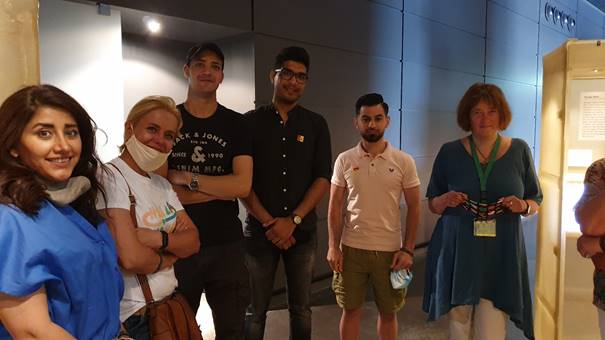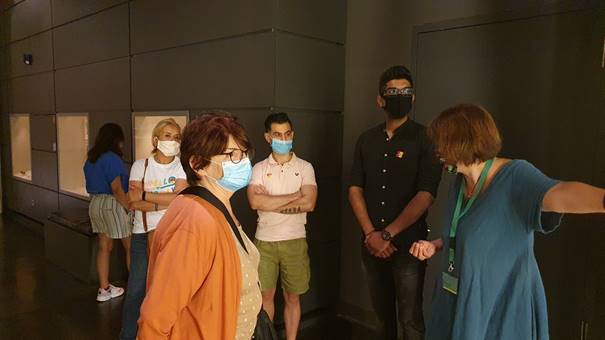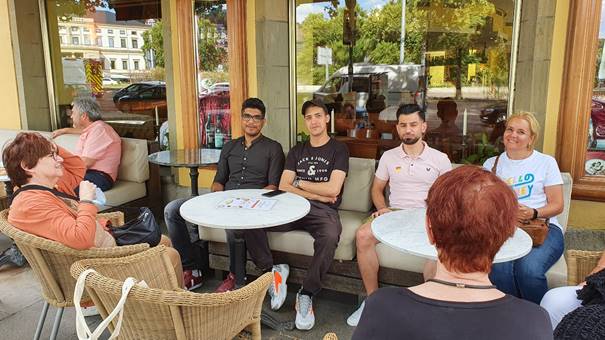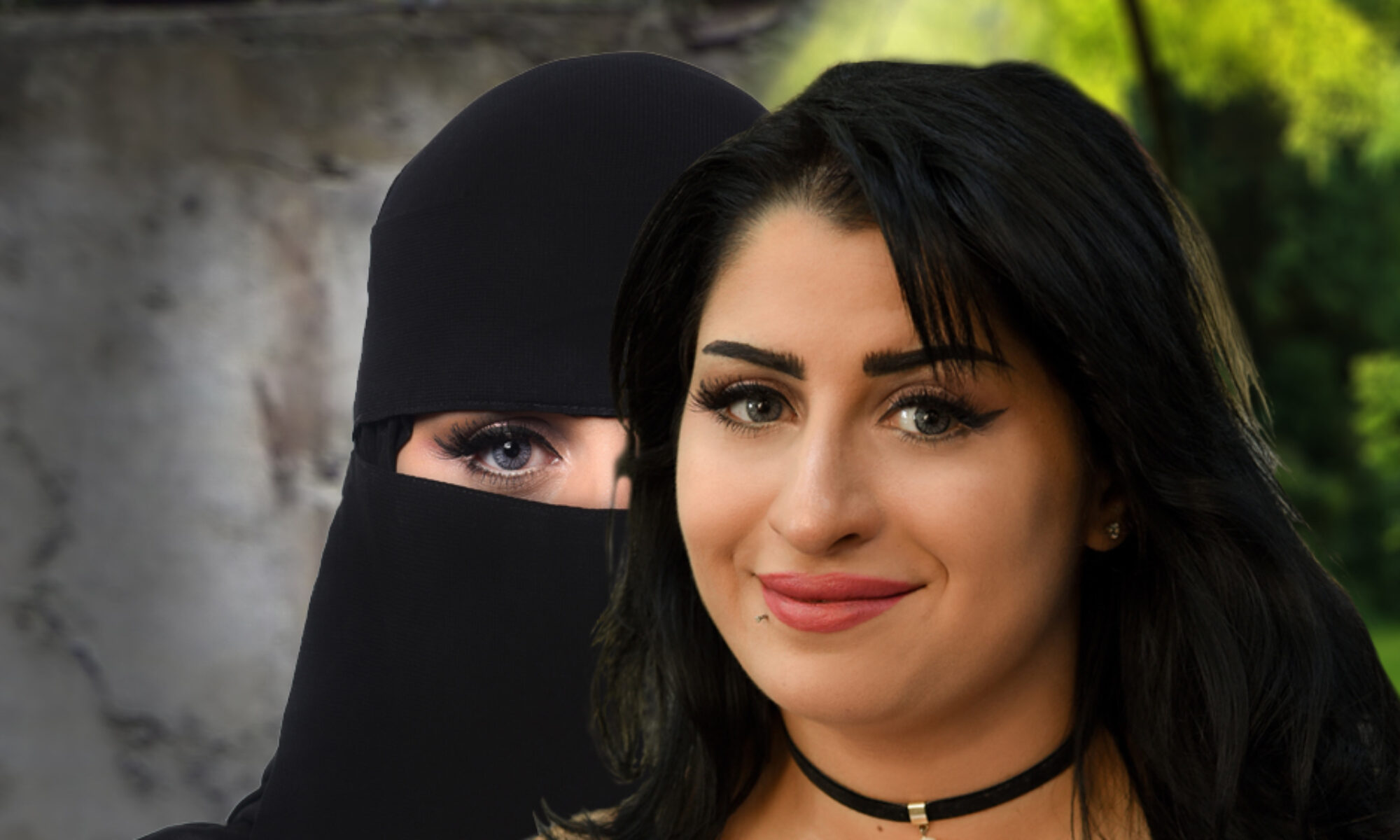
Due to the lockdown, we unfortunately had to interrupt our activities in the Atheist Refugee Relief here in Stuttgart. In cooperation with the lpb we had planned the book presentation “Frauen dürfen hier nicht träumen – mein Ausbruch aus Saudi-Arabien” (Women must not dream here – my escape from Saudi Arabia). The presentation was to be held with the author Rana Ahmad, co-founder of the Atheist Refugee Relief e.V. together with our representation here in Stuttgart. We were naturally disappointed that the project now had to be postponed until 2021. Although we kept in touch with our individual members via WhatsApp at that time and also held a video conference, it was clear to us that the group had the desire to meet again “analogue”. Since the group is spread over Ludwigsburg and Stuttgart from Bad-Wimpfen to Esslingen, the need to meet is great.
Adel, an atheist from Iraq, wanted to do some sight seeing, because he had been in Heidelberg with friends shortly before the lockdown and the castle there had fascinated him. The desire arose to learn something about the history of Germany. That’s when the project of a visit to the “Haus der Geschichte” (House of History) became concrete. There, special guided tours for refugees are offered and we also pointed out that our group are secular non-religious refugees who had to flee their home country for religious reasons. They wanted to learn more about secularization.
Here I would like to point out that Mohammed Al-Shammari, who was accepted as a refugee in March, was also present. He wants to remain active in the group, and we were very pleased about that, because he brings confidence to the group.
We had a very good museum guide, someone who had a very broad knowledge and she was able to impart her knowledge very well and factually. The group was already surprised to hear that there have been religious wars in Germany too, that some regions were only Catholic or only Protestant and the denomination of the prince was decisive. It was interesting for them that in former times social life took place only in the circle of the religious community and that often three societies lived parallel to each other, the Catholic, the Protestant and the Jewish.

The revolutions in Germany were mostly followed by impulses from France. The concessions made to the population as a result were later withdrawn. There was progress and regression.
That we have the secular state of today that they would wish for in their homeland has not been given to us on a silver platter, but there have been many struggles. They realized that this struggle went on for centuries. Napoleon brought a liberal legal system for all citizens to Baden-Württemberg with the “Code Napoleon” or “Code civil”. This included freedom of religion, which also made it possible for people to practice their religion privately in Stuttgart in 1806 with the enactment of the Edict of Religion (1806) and the establishment of their own Stuttgart city parish, which was thus set in motion. The freedom of religion at that time allowed people to choose their religion freely. It was probably only possible not to state a religion after the civil registry was no longer kept by the churches but by state registry offices.
Since the Weimar Constitution of the Reich in 1919, there is no longer a state church in Germany and the path to democracy has been taken. However, democracy was not stable and the people had a difficult economic time after the 1st World War – this led to the seizure of power by a right-wing populist party – the Nazis. Democracy was undermined, the KPD was banned, the Jews were blamed for everything bad and the persecution of the Jews developed step by step.
The group was also very interested in the struggle for women’s liberation, for equality between men and women, because this too is very much influenced by religion and since we have two young Iranian women in the group, many questions were asked.

The tour was supposed to last one hour, but was extended by 30 minutes with the agreement of all participants. The group was unanimously enthusiastic about the guided tour, some they had heard in the German or integration course, but here in the exhibition it was much more concise.
Afterwards we went for a drink together and there was a lot of discussion, I think this trip will keep them busy for a long time, they all fled to Germany because they always heard or read that Germany is very tolerant with regard to religion, but how it came about was never explained to them. I think this knowledge makes them stronger when it comes to discussions about their secular attitude.
We’ll certainly be making such a trip again. It made everyone feel like they belonged to a community.




